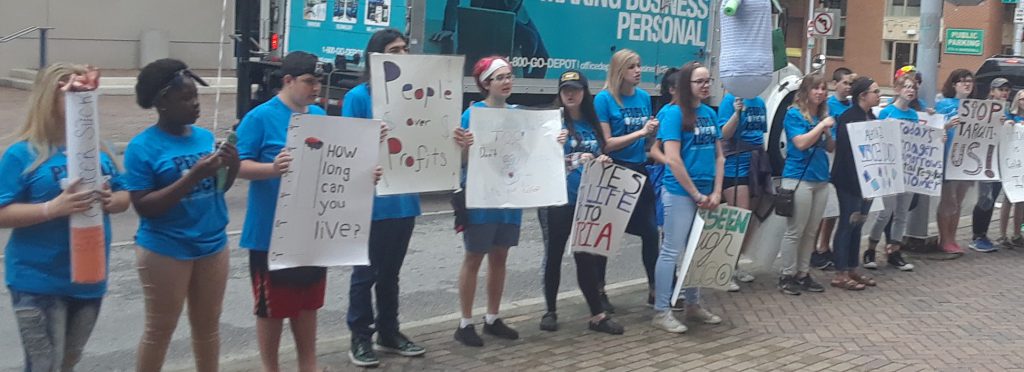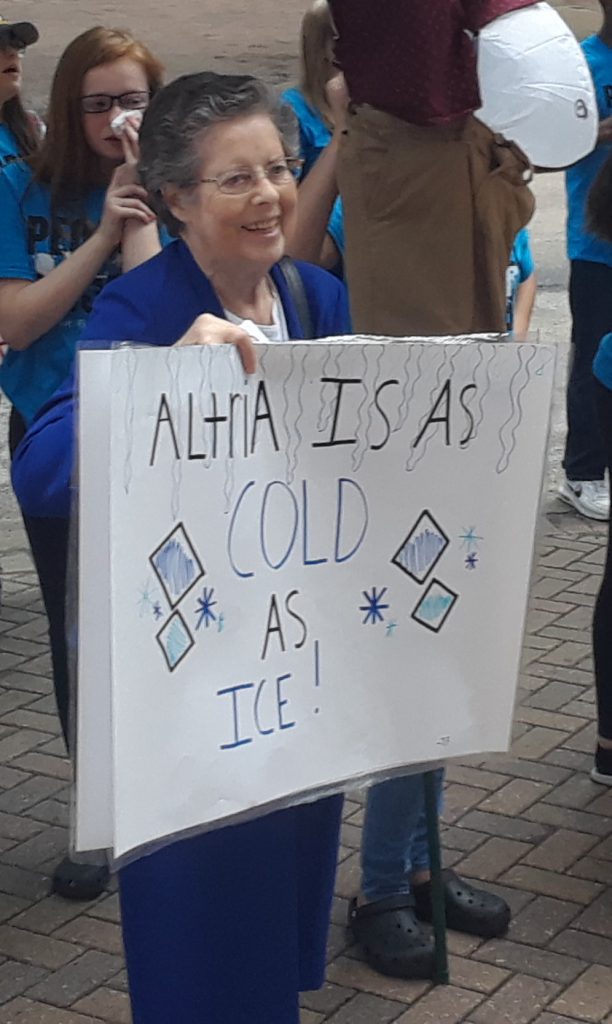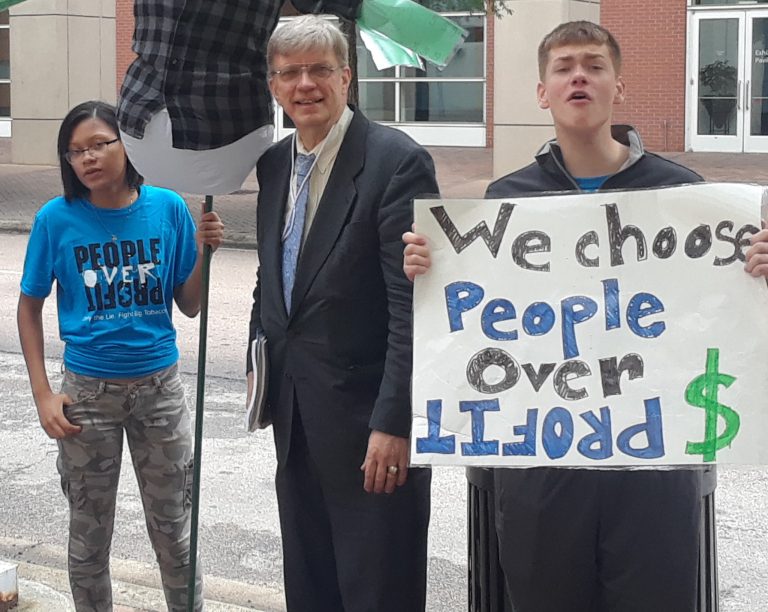By Edward L. Sweda, Jr., Senior Attorney
It became clear in the months leading up to the May 17th Annual Shareholders Meeting for Altria Group that 2018 would be a time for change for the company. In January, Chairman, CEO and President Martin Barrington publicly announced his intention to retire due to the approach of his 65th birthday later in the year. At the shareholders meeting in Richmond, VA it was noted that 54-year-old Howard A. Willard III would become the next Chairman and CEO of the company while 47-year-old William F. Gifford, Jr. would become the Vice Chairman of Altria. But, as it was during the Philip Morris/Altria Group regimes of Hamish Maxwell, Geoffrey C. Bible, Michael A. Miles, Louis C. Camilleri and Martin J. Barrington, it is expected to be business as usual.
For this author, completing this annual trip to Virginia’s capital was unlike any of the more than two dozen such trips he has made. As I addressed the meeting on an overcast Thursday morning in Richmond, I noted that this meeting “is the first Altria Group Shareholders Meeting taking place since the death of Father Michael Crosby. He passed away last August, eight months after his diagnosis with cancer. And I just wanted to state and I think this is certainly a very appropriate setting for me to state my enormous admiration and respect for Father Crosby. I met him actually in the early 1990s coming to shareholder meetings when the company was called Philip Morris, and also going to the Reynolds meetings in Winston-Salem. He was just without any flaw in terms of his total dedication to social justice, inspired by his devotion to his Catholic faith and, of course, he was a Capuchin father for many, many years. So, I just wanted to note that most certainly, I could not possibly be here without thinking of and respecting his memory.”
Citing five separate litigation setbacks for the tobacco industry that occurred just within the past three months, I asked Mr. Barrington, “isn’t it true that the value of Altria shares has been diminished by the uncertainties and concern about tobacco litigation?” In response, Mr. Barrington did begin by seconding my comments about Father Crosby and noted that the company had reached out to his family after his death. As to the issue of litigation and stock price, Mr. Barrington denied a link, alleging that Altria’s shareholders “should feel good about the way the company’s handled litigation.”
Before, during and after the meeting at the Greater Richmond Convention Center , dozens of youth from Reality Check of New York and No Limits Nebraska exercised their First Amendment rights by demonstrating forcefully outside the building with the resounding message: People Over Profits. Other slogans included “Say Yes to Life, No to Altria” and “We’ve Seen Enough.”

Austin Ring, a Senior at Olean (NY) High School entered the meeting and asked a question on the company’s advertising and packaging of tobacco products. He noted that the “three most heavily advertised brands in America – Marlboro, Newport and Camel – were the preferred brands of cigarettes smoked by middle school and high school students. So, my question is, what is Philip Morris doing to decrease the appeal of its products to youth?” In response, Mr. Barrington referred the questioner to the company’s website and specifically claimed that the company does “not make our packaging to look like the other products” [such as mint, gum and beef jerky products].
Emma Stewart, a Senior at Plattsburgh (NY) High School, addressed the problem of the 4.5 trillion cigarette filters that are littered worldwide each year. She recommended the adoption of smoke-free policies for outdoor spaces as one way to reduce such litter. Mr. Barrington responded that the fight against litter could be viewed as a totally separate issue from the question of adopting smoke-free policies outdoors, which the company opposes.
Justin Flores, the Vice President of the Farm Labor Organizing Committee (FLOC) and a colleague, Jackie Castillo, addressed the problem of farm conditions having gotten worse for FLOC’s members.

The one shareholder resolution was sponsored by the Sisters of St. Francis of Philadelphia. The resolution called on the Board of Directors to “take steps to preserve the health of its tobacco-using customers by making available to them information on the nicotine levels for each of our cigarette brands and begin reducing nicotine levels in our brands to a less addictive level.” In support of the resolution, Sister Nora Nash urged the company to “play a more significant role in protecting young Americans against the severe health effects of tobacco.” She also noted that Mr. Barrington in November 2017 had said that “Altria is ready for the introduction of reduced {risk] cigarette products.” Moreover, Mr. Barrington had admitted that Altria has “developed ways of producing reduced nicotine cigarettes and aspire to become the U.S. market leader in non-combustible tobacco products such as the e-cigarettes, ahead of potential federal requirements for tobacco.” She concluded by stating that the Sisters of St. Francis and other supporters of the resolution “are about protecting families and reducing the risk, the FDA and all concerned shareholders are looking at how we can protect the American family and all who have serious issues with nicotine.”
The resolution got 4% voting in favor, with 96% in opposition.
As I left downtown Richmond after the 2018 shareholders meeting, I realized that it was not only Altria Group, Inc. that was undergoing transitions. For I had seen that, in addition to middle-aged adults who were speaking truth to power, there was an energetic and passionate group of youth who were ready, willing and able to do the same. In that regard, even if they had never met him, the dozens of youth were indeed carrying on the legacy of Father Michael Crosby.

